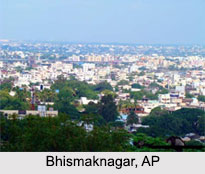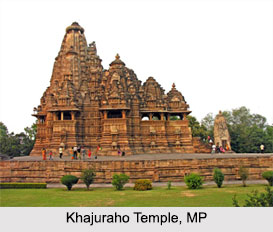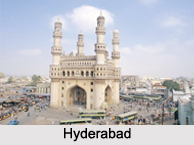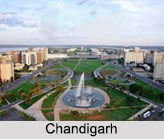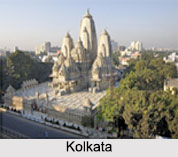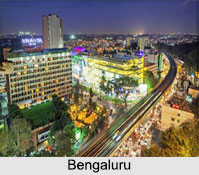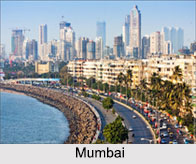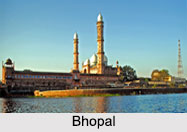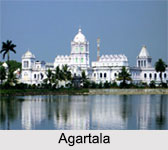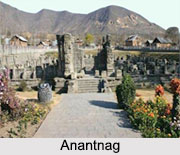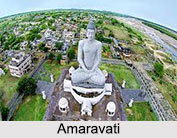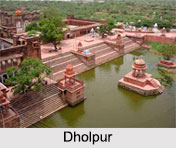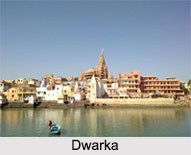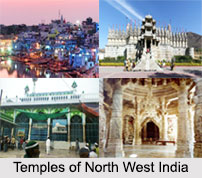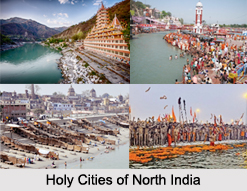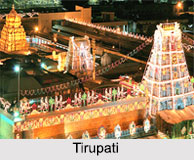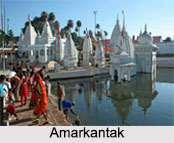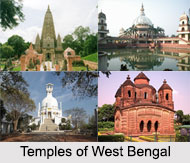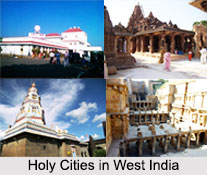The city of Jaisalmer is popularly known as the Golden City because of its glittering yellow colored sand. It is sure to cast a magical spell on the visitors. The city is nestled on Trikuta Hill. Jaisalmer stands tall against miles of gleaming sand epitomizing the desolate awesome charm of the desert. Similar to many cities of Rajasthan the history of Jaisalmer too is rooted in legends. Legend says that the Lord Krishna, the head of Yadav clan, had prophesied that a remote descendant of the Yadav clan would one day build his kingdom atop the Trikuta Hill. In the 12th century Maharawal Jaisal, a Bhati Rajput prince and a descendant of the Yadav, came to Jaisalmer to seek the blessings of the sage Eesul. The sage told him about Lord Krishna`s predictions.
On the sage`s advice Maharawal Jaisal shifted his capital here from the nearby Lodurva and thus founded the city of Jaisalmer in the year 1156 A.D. Another important era in the history of Jaisalmer that is worth mentioning is derived from Barhats who still sing of the events that began with Sultan Alauddin Khilji`s siege to Jaisalmer at the end of the 13th century. A caravan full of treasure of the sultan was captured by Jaisalmer`s three princes. Furious at this the Sultan launched a punitive expedition and the siege lasted for almost eight years. During this period Maharawal died and his son Mulraj-I ascended the throne. But towards the end of 1294 A.D. food and ammunition were practically exhausted and eventually Jaisalmer fell. But till the end they did not give up. While the women performed Jauhar led by the queens of the Mulraj brothers to prevent themselves from falling into the hands of the enemy the 3800 surviving Rajput men donned their wedding robes over their armor, bound the `mor` and rode out to accept death but with valor.
With time the Bhatis recaptured Jaisalmer. Maharawal Duda`s descendants continued to rule till 1315. The second invasion on Jaisalmer was carried out by the then Sultan of Delhi, Feroz Shah when he passed through Jaisalmer enroute to Ajmer. Jaisalmer could not escape vengeance. Once more the women of Jaisalmer performed jauhar and the Maharawal Duda and his son Tilaski died with 1700 of their loyal warriors.
Apart from legends, Jaisalmer city also echoes the history of lineage of kings and the stories of their achievements. Bhati Rajputs constitute the majority of the population of Jaisalmer. They have got their names from their predecessor Bhati who was a popular warrior of Punjab. Sometime later the whole clan shifted towards southern part and took shelter in the sandy grounds of the Indian desert. Thus it became their homeland. There was renowned prince who belonged to this Bhatti family. He was called Deoraj. It was Deoraj who took the initiative of laying the foundation of the Jaisalmer dynasty. Also the usage of the title Rawal started with him only.
Rawal Jaisal was the 6th successor of prince Deoraj. The foundation of the fort and Jaisalmer city lay on his shoulder. He also transferred his capital from Lodhurva to Jaisalmer. The former capital, Lodhurva is located at a distance of nearly 15 kms to the southeastern part of Jaisalmer. The emperor Allauddin Khilji got furious with the Bhati clan and therefore his huge army raged an attack on the city and took possession of both the fort and city of Jaisalmer. For quite some time the city remained desolated.
In the following few years there is nothing worth mentioning in the history of the Jaisalmer city. Again during the reign of Rawal Sahal Singh was a milestone with the acknowledgement of the ascendancy of Great Mughal king Shah Jahan. It was the time when the Jaisalmer princes reached its zenith. From that time till the ascension of Rawal Mulraj in the year 1762 many of its provinces were lost. Then in the year 1818 Rawal Mulraj made his entrance into the arena of politics with the British Empire. Maharawal Salivahan was born in the year 1887. He ascended as a chieftain in the year 1891.
The Maharajas of Jaisalmer, who ennobled the history of Jaisalmer, has established their line of descent to Jaitsimha. He was a king of the clan of Bhati Rajput. With the Rathor clans of Bikaner and Jodhpur they had major opposition. Between them, frequent battles used to take place in order to possess fortresses, ponds or cattle ship. Due to the strategic location of Jaisalmer it became a halting ground along a conventional trade route. It was the favorite route for the camel caravans of both Indian merchants and also those residing in the Asian subcontinent as a whole. Besides this route also is linked to various foreign countries like Egypt, Central Asia, Persia, Arabia, Africa and the West.
In the history of Jaisalmer the years that follow has been categorized as medieval period. It witnessed the invasion of Islamic rulers in India. At that time, Jaisalmer, however, narrowly escaped from the possible attacks of the Muslim rulers. The reason is due to their strategic location, which was an advantage for Jaisalmer. Actually the inaccessible desert region acted as safety valve for it. As has been mentioned before, the first attack on Jaisalmer came from Alauddin Khilji. After that several attacks were proclaimed on them. A series of defeat provokes the Bhati Rajput clan of Jaisalmer to proclaim the famous rite of Jauhar. Jauhar signifies the self-immolation of Rajput women of defeated Rajput castes.
The following years in the history of Jaisalmer saw the siege of Sultan Feroz shah. This attack came after the Jaisalmer kings bust his camp at Anasagar Lake, which is located at a place near Ajmer. Another jauhar rite also was followed.
In this attack Duda, the prodigal son of Jaitsimha, a famous king of Rajput clan, met his death. For the next 2 centuries the successors of Duda established their dominion in Jaisalmer. Evidences also are found of attack of Mughal king Humayun. Lunakarna , a successor of Doda fought with Humayan when the latter traversed through Jaisalmer on the way to Ajmer. Annuls of history of Jaisalmer further depict the glory of Jaisalmer. Later the Great Mughal king Akbar also tied wedding knot with one of the princesses of Jaisalmer. A noble named Sabala Simha won the `patronage` of Shah Jahan, the famous Mughal emperor, for the services that he provided in his Peshawar campaign. He also reigned over Jaisalmer.
History of Jaisalmer also came under the impact of British rule in India. In fact Jaisalmer was one of the last states that signed a treaty with the British rulers. At the time of British era, it was the seat of the princely state of Jaisalmer. Bhati Rajput clan ruled the state. As per reliable source Brijraj Singh is the present descendant. Although the city came under the jurisdiction of Government of India, till today he and his family members keep up with their social work. The people of Jaisalmer too show a lot of respect to them as well.
